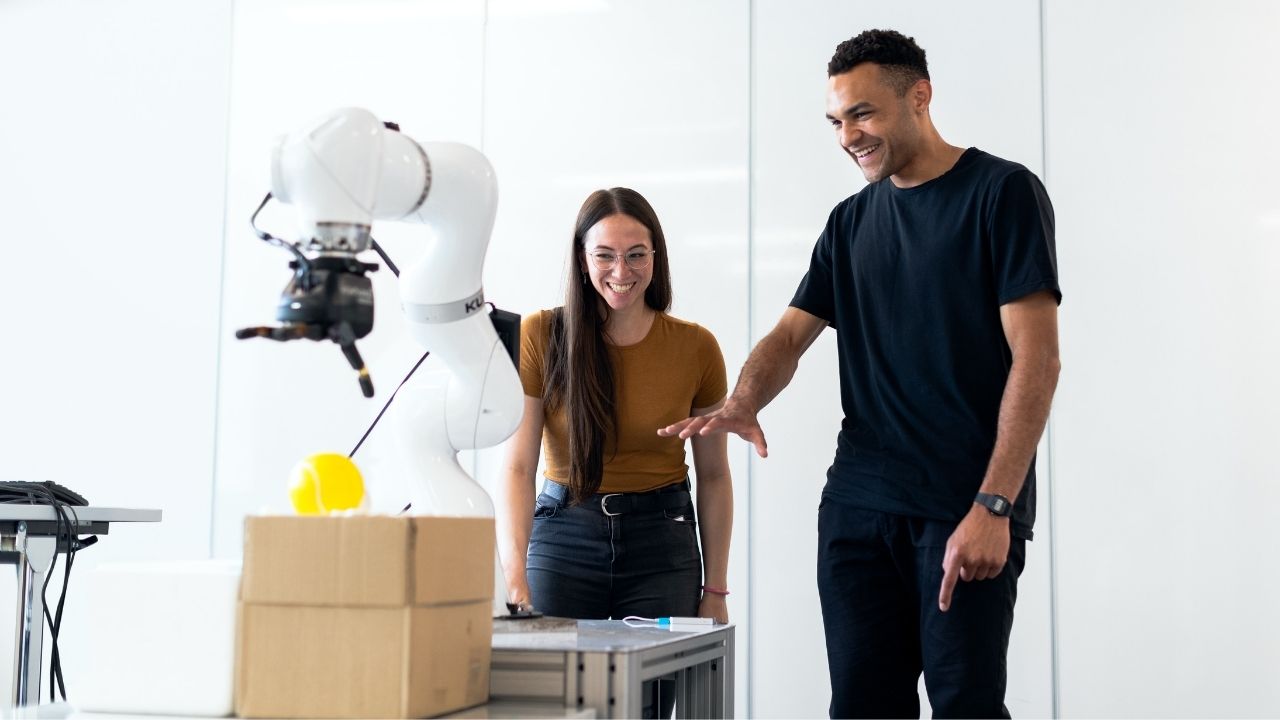- The World Economic Forum estimates that 85 million jobs will be replaced by machines with AI by 2025.
- Despite the misconception that automation and AI decreases job opportunities, it may actually prompt a huge spike in new positions.
- The question is no longer whether AI will change the workplace; it’s how companies can successfully use it in ways that enable – not replace – the human workforce.
Artificial intelligence technologies have reduced repetitive work and enhanced work efficiency, and as a result, almost every industry in the world is planning to leverage AI or has already implemented it in their business.
Despite the misconception that automation and AI decreases job opportunities, it may actually prompt a huge spike in new positions. According to the World Economic Forum Future of Jobs Report, 85 million jobs will be replaced by machines with AI by the year 2025.
While that statistic might make you uneasy, the same report states that 97 million new jobs will be created by 2025 due to AI.
The question is no longer whether AI will change the workplace; it’s how companies can successfully use it in ways that enable – not replace – the human workforce. AI will help to make humans faster, more efficient, and more productive.
What jobs will AI actually replace?
It’s true that AI will threaten some unskilled jobs through automation, but it will also potentially create different kinds of jobs that require new skill sets that will be developed through training.
AI can be used in manufacturing to make processes more efficient while also keeping human workers out of harm’s way. Opportunities to leverage AI and machine learning in manufacturing include product development, logistics optimization, predictive maintenance, and robotics.
In all likelihood, AI will take over jobs that require copying, pasting, transcribing, and typing.
In areas such as medical diagnosis, speech translation, and accounting, AI has outperformed humans in every way.
But AI will not be able to replace human judgment. AI is just the most recent manifestation of ongoing workplace evolution.
Finding the things that are worth teaching to the AI will still always be a job in the hands of humans.
While this might not be true forever, AI isn’t capable of developing complex strategies or thinking critically through complicated scenarios. There is a certain element of human intuition that’s critical, and many people will turn to AI to assist them in thinking through problems – but ultimately, humans will make the decision.
What jobs will AI create?
AI has accelerated demand for positions like machine learning engineers, robotics engineers, and data scientists over the last five years.
A number of positions are already developing around AI, such as AI trainers, individuals to support data science, and capabilities related to modeling, computational intelligence, machine learning, mathematics, psychology, linguistics, and neuroscience.
PwC estimated that the healthcare industry will benefit the most from the use of AI, where job opportunities could increase by nearly 1 million. In the near future, the requirement for AI-assisted healthcare technician jobs will see an upward surge.
AI is already playing a major role in the automated transportation sector. Companies like Uber and Google are investing millions of dollars into AI-driven self-driving cars and trucks. As this mode of transportation picks up in the future, it will create plenty of vacancies for AI and machine learning engineers.
As AI gets implemented in every industry, the demand for an AI maintenance workforce is going to skyrocket. Companies would need large amounts of AI developers and engineers to maintain their systems.
AI will help companies scale up. If AI and machine learning algorithms can competently use large amounts of big data, it will help companies perform better. It will also increase the employee retention rate and help in new customer acquisition, which will create new job opportunities as companies begin to scale up and grow.
Humans will need to up-skill
According to Mohit Josh at Bengaluru, India-based Infosys, there aren’t enough qualified workers available to fill all of the AI-related roles.
“Currently there is a widespread shortage of talent that possesses the knowledge and capabilities to properly build, fuel, and maintain these technologies within their organizations. The lack of well-trained professionals who can build and direct a company’s AI and digital transformation journeys noticeably hinders progress and continues to be a major hurdle for businesses,” he said.
Businesses should enforce on-the-job training and re-skilling. With the proper staff powering AI, employees are able to focus on other critical activities and boost productivity.
To prepare workers for the millions of new jobs that AI will inevitably create, organizations will have to provide significant resources for upskilling their workforces.
As well as this, employees will need to take personal responsibility for their career development in a world of rapid technological change.
Sean Chou, CEO of Chicago-based automation technology firm Catalytic, is a strong advocate of upskilling as a way to support both his organization and his employees in adapting to AI-enhanced ways of working.
“AI means less employee time spent searching for and manually formatting data, leaving them with more time for analysis and decision-making. This time savings also means that workers have more time for upskilling. That’s a win-win, since employees become more valuable to themselves and the company, while employee morale and retention are boosted,” Chou said.

 Dr. Gleb Tsipursky – The Office Whisperer
Dr. Gleb Tsipursky – The Office Whisperer Cat Johnson – Coworking Marketing Maven
Cat Johnson – Coworking Marketing Maven Angela Howard – Culture Expert
Angela Howard – Culture Expert Drew Jones – Design & Innovation
Drew Jones – Design & Innovation Andrea Pirrotti-Dranchak – Competitive Advantage
Andrea Pirrotti-Dranchak – Competitive Advantage Jonathan Price – CRE & Flex Expert
Jonathan Price – CRE & Flex Expert Jeremy Fennema – Tech Innovation Alchemist
Jeremy Fennema – Tech Innovation Alchemist







